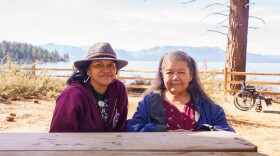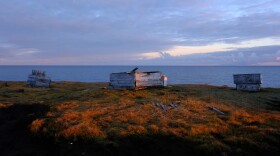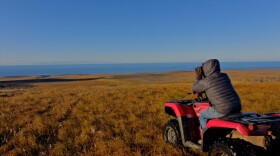-
The U.S. Department of Education started to send notices of collection, which may include wage garnishment, to borrowers whose student loans have gone unpaid for more than nine months and are in default status. Employers can withhold up to 15% of disposable income, without a court order, from employees whose student loans are in default.
-
A group of young Indigenous men spent a week on the Wind River Reservation for a photo camp with National Geographic. The students camped, fished, explored and even helped with a bison harvest, all while honing their skills as storytellers and photographers.
-
In southern Oklahoma, the Chickasaw Nation is planting trees to combat climate change. The project is also ensuring that Chickasaw culture gets passed down to the next generation.
-
Researchers from the University of Hawaiʻi at Mānoa are using Okinawan songs to learn about climate and geology. Our Living Lands Producer Daniel Spaulding spoke with Justin Higa, a postdoctoral fellow and a Ryukyuan traditional music practitioner, about the connections between climate, music, and culture.
-
Across the country, Indigenous communities are facing increasing levels of food insecurity. In response, tribes are stepping up their food sovereignty efforts.
-
The report finds children raised by grandparents face higher rates of poverty and limited access to support services.
-
The Washoe people believe the Tahoe Basin is the spiritual center of their world. They only have limited access to its shores but grassroots nonprofit aims to change that, healing both land and people.
-
Alaska Desk reporter Alena Naiden spoke to Our Living Lands Producer Daniel Spaulding about her reporting from Savoonga on the effort to preserve traditional ice cellars, climate change’s impact on subsistence and more.
-
Climate change has threatened subsistence practices in the Arctic. Alena Naiden reports how one village in Alaska is trying to transform reindeer herding practices into a sustainable business.
-
The Miccosukee Tribe has faced climate change on their lands in the Florida Everglades. Now they are fighting a federal immigration detention center.

Play Live Radio
Next Up:
0:00
0:00
Available On Air Stations










